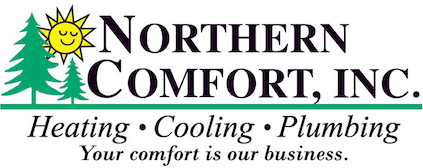
To combat increasing energy expenses and embrace sustainability, many homeowners are trying new methods to maintain comfort levels while using less energy. As part of the Inflation Reduction Act, federal tax credits are available for energy-efficient home upgrades, especially HVAC systems like air conditioners. These credits offer significant savings, as long as the homeowners choose qualifying equipment and submit the appropriate form.
If you’re worried about a long, complicated process, maybe we can help! Northern Comfort Inc hopes this guide will give you everything you need to earn these HVAC tax credits in 2024. Here’s how to make it happen.
Understanding the HVAC Tax Credits
These valuable tax credits for upgrading your home to be more energy-efficient are just one intended use of the recent Inflation Reduction Act. With the higher cost of energy making an impact, helping more homeowners upgrade their equipment is always beneficial. The primary goal of these credits is to reduce the cost of installing high efficiency upgrades. Of particular importance are the Residential Clean Energy Credit and the Energy Efficiency Home Improvement Credit.
Don’t forget, to claim your credits, you’ll have to complete IRS Form 5695. Additionally, this form is submitted during the same tax year any upgrades were installed, not purchased.
Energy Efficiency Home Improvement Credit
Through 2032, the Energy Efficiency Home Improvement Credit provides up to $3,200 every year for energy-efficient home upgrades. This amounts to 30% of the total project’s cost. You should be aware that in order to receive the maximum amount, you’ll have to make several investments. For example, you’ll get up to $2,000 for a new, high-efficiency heat pump. This can be paired with an additional $1,200 in credits for more projects in the tax year.
While new heat pump systems are a popular option for the tax credit, high-efficiency furnaces, air conditioners, boilers, and other HVAC systems are still eligible for this tax credit. It will help to confirm that your choice’s energy efficiency rating is sufficient to qualify.
Exploring the Residential Clean Energy Credit
The Residential Clean Energy Credit amounts to roughly 30% savings on a wide range of residential clean energy equipment upgrades. Eligibility only applies to homeowners seeking to update existing or newly constructed homes. While the Home Improvement Credit highlights utilities and HVAC systems, this credit targets renewable energy sources like solar and wind energy.
Some provisions of the tax credit include the requirement that installation must occur between 2022 and 2032. But at the same time, homeowners can keep the excess credit to reduce future taxes. This is a great way to spread out costs and keep them more manageable.
What Else Is Eligible for These Tax Credits?
Because HVAC systems are one of the biggest portions of your monthly energy costs, these tax credits can guide you to the most energy-efficient options. But home energy efficiency can be improved in lots of other ways. Apart from the previously listed HVAC upgrades, {you could also choose|other eligible items include|you also have access to:
- Heat pump water heaters
- Modern electrical panel improvements
- New electrical wiring
- Insulation, air sealing and ventilation enhancements
- Energy-efficient cooking appliances like stoves, cooktops, and ovens
- Heat pump clothes dryers
- Water boilers
Just like with installing one or more HVAC systems, you’ll need to verify that your preferred make and model features the required energy efficiency ratings.
Three Tips for Making the Most of 2024 HVAC Tax Credits
While any of these upgrades can enhance your home's energy performance, a little planning will ensure the best chance at more long-term benefits. Maximize your HVAC tax credits with these reminders:
- Perform an energy audit to pinpoint valuable enhancements. Trust experienced HVAC companies to pinpoint essential products and services.
- Enhance your home's envelope by addressing inefficient windows and doors.
- Explore potential rebates from utility companies for clean energy upgrades. Renewable sources like solar, wind, and geothermal contribute to community power grid sustainability.
- Don’t forget financing options from local service companies, which can help reduce costs even more.
Secure Your 2024 HVAC Credits with Help from Northern Comfort Inc
Partner with local HVAC professionals like Northern Comfort Inc for help with home energy audits and new installation projects. Our helpful installers will deliver everything you need for a more energy-efficient home.


